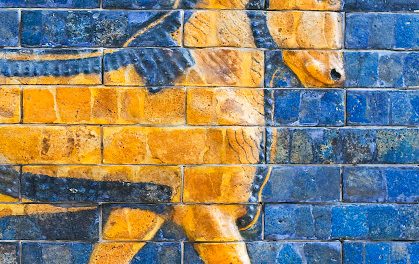
So the wise men may have actually been Persian, but influenced by their own beliefs and those of Jewish scholars to seek the Messiah.
Who Were the Wise Men Who Visited Jesus?
We have an image in our minds of the “Wise Men” who visited Jesus (in a house, not in the stable), and it often looks like this:

Image via Guideposts.org
There are three. But the Bible doesn’t tell us that there were only three wise men, so there could have been more than three (or less), and doesn’t tell us anything about them except that they came from the east. So who were they?
They may have been Jewish scholars
Around 600 B.C. the Babylonians attacked Jerusalem in three waves several years apart and finally decimated the city in 585. They killed many and took the best and brightest off to Babylon. Seventy years later, Babylon was conquered by the Medes and Persians. King Cyrus resolved to help the Jews return to Jerusalem where they could rebuild their temple.
Thing is, Jerusalem was still a ruin at the time and many Jews became comfortable in Babylon. Many decided to stay in Babylon (in present-day Iraq) rather than to go home. In fact, a group of Jewish scholars there continued as the highest authority in Judaism. These rabbis compiled the Babylonian Talmud around 600 A.D., so you can see that Babylon remained an important place for Jewish scholarship for a very long time. It is possible that Jewish scholars from Babylon studied the promises of a Messiah to come and were inspired to seek Him through their own scholarship, reasoning, and revelatory experiences.
They may have been Zoroastrians
King Cyrus was a Zoroastrian, the religion founded by the prophet Zoroaster (Zarathustra) in ancient Persia. (The Bible mentions Cyrus by name as a helper of the Jews.)
After receiving a divine vision, Zoroaster taught his followers to worship only one god, Ahura Mazda. Zoroastrianism has many similarities to Abrahamic religion, with a force for good and a force for evil, one god, etc:
“Zoroastrian concepts, including the idea of a single god, heaven, hell and a day of judgment, may have been first introduced to the Jewish community of Babylonia, where people from the Kingdom of Judea had been living in captivity for decades” (History.com).
So the wise men may have actually been Persian, but influenced by their own beliefs and those of Jewish scholars to seek the Messiah.





